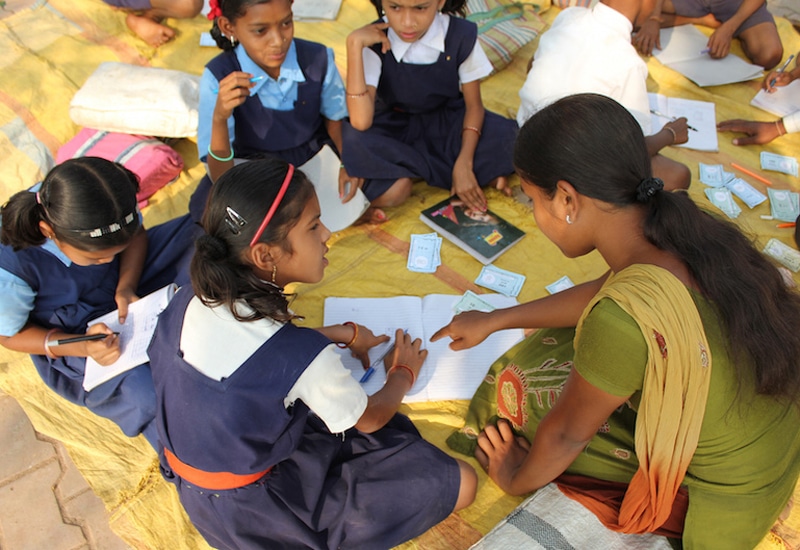
MUMBAI, India (WOMENSENEWS)—The Podar Institute of Education, a school where the student population ranges from 5 years old to 18, wanted to offer sex education. But administrators also wanted to make sure parents would allow their children to attend.
So they called the classes, now offered once or twice a year, “Good Touch, Bad Touch,” or “Know Your Body.” No mention of sex or sex education was made, an omission they thought would also make the trainers more comfortable.
“Sex is a taboo in India and the name ‘sex education’ can be misleading,” Swati Popat Vats, director of the Podar Institute of Education, told Women’s eNews in a recent phone interview. “It signifies different things to different people. The workshop or class is not about sex but about how to be more aware of one’s body. Both the students and the trainers feel uncomfortable in using the term. I believe it should be called ‘Body Intelligence Workshop,’ because that’s what it really is.”
Vats said that while the more exclusive private schools are more open to the term sex education, schools such as hers that serve children from less affluent backgrounds need to avoid the term.
Podar joins plenty of other schools in India that shy away from using a term that is embroiled in controversy. Just two years ago, Dr. Harsh Vardhan, the country’s health minister, called for the ban of “so-called sex education.”
“It is a nightmare to conduct sex education workshops,” said 30-year old Suparna Ghosh, a counselor at a private school in New Delhi who conducts workshops for students who are about 10 years and older. “Some schools decide to conduct separate sessions for boys and girls. Students feel ill at ease and generally want the session to be over. Sometimes they come after the session to talk individually about their concerns or problems. I believe it will really help if we could just use a generic term. The students would be more receptive.”
Child Abuse Connection
Whatever you call the teaching of anatomy in the context of appropriate intimate human contact, people concerned about the thousands of cases of child sex abuse filed annually here think it could help.
“We believe that sex education should start early,” said Manjeer Mukherjee, director of Arpan, a child rights advocacy group based in Mumbai. “This will not only provide knowledge and awareness within children to deal with different situations, but also create vocabulary to talk about these things. Moreover, parents and teachers need to become involved because the education imparted in these classes has to be reinforced by them,”
While it is important to start the conversation, it is equally important to break the taboo around sex, added Mukherjee, who spoke by phone. “It will help to have a non-threatening name for it. However, the parallel process to break the taboo around sex should continue.”
Parents also say they need help raising the topic of sex with their children, since they could be getting their basic impressions about sex through the Internet.
“I realized I had to talk to my 14-year-old son, when I discovered that he was accessing undesirable websites on Internet,” said one 40-year-old woman, who spoke on the condition of anonymity. “My parents had never openly spoken to me about such matters, so I didn’t have any yardstick/reference point. We decided to attend one workshop just to know how to talk to our son. That workshop was simply called, ‘How to talk about sex to your child.’ Though broadly I am in favor of sex education, I wouldn’t be comfortable if my child was attending workshop with explicit terminology.”
Though sex education is compulsory in India, its implementation is patchy at best due to the resistance of private and public authorities responsible for implementing it.
“Sex education was made compulsory in the country a long time back but it failed to make an impact because of lack of trained teachers and also resistance of the institutes,” said Dr. Rajan Bhonsle, head of the department of sexual medicine at Mumbai’s KEM Hospital and GS Medical College.
Bhonsle, the co-author of “The Ultimate Book of Sex,” published in 2014 and now serving as manual in a number of sex education programs, spoke in a phone interview. He has also taught many sex education sessions in schools and now teaches others to conduct the sessions, most of which are not conducted by schools, but by a third party.


